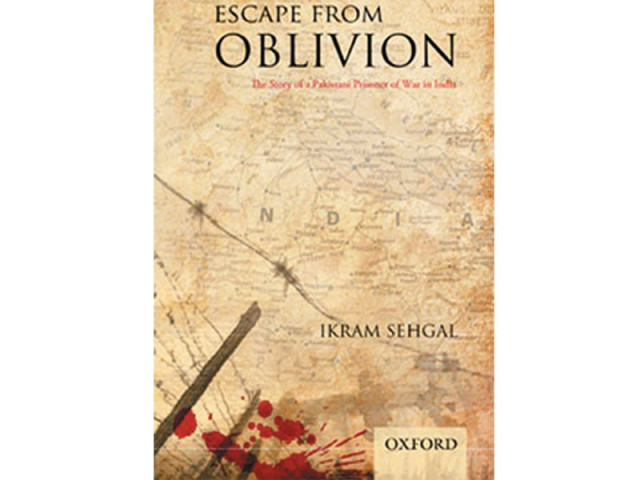Book review: Escape from Oblivion
Spoiler alert.

Book review: Escape from Oblivion
Sehgal, a well-known security analyst, was a captain in the Pakistan Army during the volatile period of 1971 and was held captive by the Indian Army for 99 days. It then took the writer 40 years to reveal to the world the story of his escape from Panagarh prison camp in the form of this book.
The book, titled Escape from Oblivion: The Story of a Pakistani Prisoner of War in India, recalls his escape from the Panagarh prison camp and eventual refuge in an American Consulate, after which he reached Pakistan.
In essence, the pages are details collected from the intense debriefing sessions he was subjected to by the Army’s Inter Services Screening after he came back home. The debriefings stretched over a period of 84 days.
The memoir is an exhaustive read that gives a blow-by-blow account of his adventures as an army captain, who wanted to see for himself the reality in East Pakistan. It is debatable whether it was his mistake or the more heroic notion of ‘providence’ that subsequently landed him into the lap of the enemy.
In hindsight, the veteran recalls the oath that ‘soldiers prefer death’ over becoming prisoners of war. But he justifies his capture by saying that perhaps there’s deliverance in the most difficult times for those who do not give up hope.
However, the gravity of this predicament results in an excessive indulgence in the moral aspects of a soldier’s life, to the extent that some chapters sound like sermons from a medieval book on courage and duty rather than a memoir. Moreover, there are repeated references to religion that obstruct the flow of the main narrative.
The trauma of spending 99 days in imprisonment resonates throughout the 138 pages, highlighting the psycho-emotional imprints that a period of imprisonment can leave behind.
The writer tries to give a detailed account of not only his long journey home but an insight into the deep recesses of his mind as well, depicting the fears and longings of a prisoner whose ultimate fate is uncertain at best.
Pathos, when combined with religion, may be an easy formula for a successful melodrama. However, infusing it with war prose simply makes it difficult to engage the reader on an emotional level.
While Sehgal’s effort is commendable in that this subjective record endeavours to reconstruct the debate on the division of Pakistan in 1971, the right wing prism through which he carries it out is typically biased.
He strengthens the typical Pakistan Army discourse that India remains the perpetual archenemy and repeatedly condemns India’s interference in Pakistan’s affairs. But, on the other hand, there is no mention of the atrocities committed by our own forces in then East Pakistan.
Published in The Express Tribune, Sunday Magazine, October 7th, 2012.
Like Express Tribune Magazine on Facebook and follow at @ETribuneMag



















COMMENTS
Comments are moderated and generally will be posted if they are on-topic and not abusive.
For more information, please see our Comments FAQ